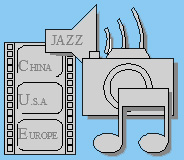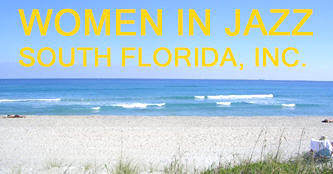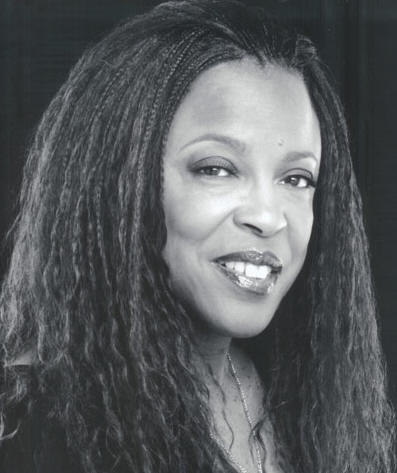EVEN MORE POIGNANT RESPONSES. . .
Commentary: Jazzschool Questions Long Overdue
By Esther Green (06-08-07)
As I see it, the recent public questioning of the hiring and operating
practices of the Jazzschool in Berkeley by prominent jazz artists and
their supporters living in the San Francisco Bay Area is long overdue.
Here is just one local example of how the actions of self-appointed
authorities on this cultural art form are marginalizing the musicians
who are the direct connection to and inheritors of the legacy. This is
being done by trivializing the dedication and level of artistic
achievement of our resident musicians who were and are members of the
real jazz community here, which existed long before all of these
exclusive so-called jazz festivals and schools.
Instead of joining the jazz community, these bubbles have been formed which allow many musicians to go straight to the bandstand without paying dues and to operate safely away from the scrutiny of the traditional standards of jazz music. Academic experience is being equated with genuine earned stature and artistic achievement. The problem is that it is being done in the name of jazz by people who have positioned themselves to deny access to performing venues and the media to many world-class musicians and music educators while at the same time professing their respect for the art form and its history. What is at stake is the livelihood and very survival of working-class musicians who are shut out of this new model after spending many years, often twenty or thirty years or more in dedication to honing their craft.
It may be interesting for some people to learn, and almost impossible for some to fully accept, that jazz music is in fact Black music invented by the African American descendants of slaves in this country. It is a cultural art form with a documented history, a distinct tradition and scores of living breathing musicians who come out of that tradition. It is blues-based music, so much so that musicians I know will tell you that there is no significant difference. I often hear phrases such as “Jazz is the blues” and “if you can’t play the blues, you can’t play jazz."
Where did the blues come from? The blues were born from the field hollers of the slaves and Negro spirituals. Connect the dots — jazz, blues, Negro spirituals, field hollers —and it always leads back to the African-American descendents of African slaves. This is not subject to debate and for anyone to talk about the African-American “contribution” is an attempt to obfuscate the truth of its origins. To me, anything less than acceptance of this fact is about as ridiculous and backward as refuting the scientific basis for evolution.
The cultural tradition of jazz music historically has been a handing down of the art form in the same fashion as oral tradition from one generation to the next. Jazz musicians have great stories about whom they have gigged with. I have always thought about this as a type of jazz pedigree; you are not a good jazz musician because you say you are, but because your artistic achievement has been recognized by an artist who is indisputably qualified to make that judgment. I could be wrong, but I don’t think I am. Just a few of the musicians I know have gigged with or worked for Big Mama Thornton, Cal Tjader, Esther Phillips, Wynton Marsalis, Donald “Duck “Bailey—who has played on more than one hundred classic jazz albums—Charles Brown, Bobby Hutcherson, Herbie Lewis, Ed Kelly, Pharaoh Sanders, Al Tanner, Buddy Montgomery, Monk Montgomery, Diane Reeves, Carmen McRae. Gigging and playing with such musicians is not to be confused with encountering artists of this stature in a jam session or master class, but actually being paid by them to perform with them.
These jazz legends were recognized and came up under the greats before them and so on. This has been the tradition. These are just a few of the people I know and the names I have listed are only the ones I can readily remember. It is staggering to consider what a complete list of all of the musicians I know and have met who live in the San Francisco Bay Area would look like. How can it be that someone is good enough to play with many such musicians throughout their career, but magically not of the “quality required” for local jazz festival organizers, often in their very own hometowns, when it comes time to chose the performers who will receive the considerably larger sums that are earned from playing a festival as opposed to nightclub gigs? The director of the Jazzschool in Berkeley, who has been quoted as saying “I hire quality, not ethnicity,” knows these very musicians and many others, and has for at least 20 or 30 years. She also knows the esteemed educators/performing artists in the tradition who have held and hold positions at local colleges. With her extensive knowledge of the local scene, to plan the Berkeley Jazz Festival as has been described in the media, and to engage in the hiring practices she has been called on, looks like she is actually hiring ethnicity and not necessarily the highest quality available in jazz. The ethnic group that is overwhelmingly frozen out are African-American musicians, especially African- American men, the very foundation of the art form.
Being invited to play with musicians of the caliber I have mentioned is a serious achievement and may seem like a very high standard, but it has always been the standard until now. This should not be some form of pee-wee soccer where everyone gets a trophy for showing up.
This same director of the Jazzschool has also attempted to confuse the issue by bringing in the idea of gender discrimination. This may have been, and may still be, true, but that is not what the charges against her are, nor the point of the current discussion. After all, she hires plenty of non-African-American women. More important, trying to use the gender card to divide Black musicians and their supporters is to discuss the issue outside of historical context. The fact is that throughout its infancy, playing jazz was a gritty business. That’s just how it was. You must remember that jazz was formed during a period of this country’s history when African-Americans were forcibly segregated into their own communities, and African-American women were involved. I would also add it was not the most enlightened period for women’s rights in general, but that was certainly not because of jazz musicians. What appears to be discriminatory to me now is the exclusion of a whole group of local, resident artists.
Readers interested in Doug Edwards’ radio show Ear Thyme can find online in the KPFA archives. The relevant shows were on May 19 and May 26. The guests were concerned artists, a jazz club owner, and the director of the Jazzschool in Berkeley.
Esther Green is a Berkeley jazz fan. (Source)
Selected Articles List sent June 9, 2007
WELL, WELL, WELL! THE DEAD HAVE AWAKENED!
WELCOME PILGRIMS. YOUR SEARCH HAS ENDED!
Founder, CUE JAZZFEST
"You never change things by fighting the existing reality. To change
something, build a NEW model
that makes the existing model obsolete."
-- Buckminster Fuller
Selected Articles sent June 17, 2007
Here are article links regarding our discussion issues. Again, I am omitting "echoes" of the original articles on other sites; I'm also omitting blog entries and other web site entries due to the sheer number of them.
I've had a couple of requests from people using plain text mail viewers that I spell out the links rather than imbed them in explanatory text. At the bottom of this message I've copied the links sent out June 9th to an address list that might not have been as complete as this one. People who didn't get a chance to access these prior articles can do so now.
Eva Patterson (Equal Justice Society) Comments
Berkeley Daily Planet, 6/8/2007 - Commentary: Jazzschool Questions Long Overdue by Esther Green
Andrew Gilbert: Jazz Talk: Yoshi's: Behind the charges of bias - Contra Costa Times Article Launched: 06/14/2007
www.contracostatimes.com/entertainment/ci_6138481
Good discussion of related issues, especially re semiotics...
Radio Free Coltrane: Free Jazz Radio as Revolutionary Practice
- Americana: The Journal of American Popular Culture (1900-present),
Provocative panel discussion from 2001
JAZZ AND RACE: BLACK, WHITE, AND BEYOND panel discussion featuring
professor/author Dr. Harry Edwards (moderator), saxophonist Steve
Coleman, professor/author Dr. Angela Davis, author Nat Hentoff, Blue
Note Records president Bruce Lundvall and author Richard M. Sudhalter
I'm
off to OWN my own venue. Do you want to be a partner? Contact me at:
cuejazz@gmail.com What does
it take? MONEY$$$$$$$$$$$$$
Fall 2006, Volume 5, Issue 2
He or she that hath the GOLD rules!
FROM: Rhonda Benin
A little over 3 months ago , we all came together to pour out our hearts, cry and tell war stories, We are Over that now! A gauntlet has been thrown down, and we have responded with swift vigorous action. A new organization was spawn out of those earlier meetings that was packed with angry, frustrated musicians, fans and vocalists, who had been wronged and disrespected. WE have formed, The San Francisco Bay-Area African American Musicians. A "legal entity to help address some of the issues YOU said were important to YOU. You also said: WE need to DO SOMETHING!
We Have!
YOU said, " We're not taking it anymore" We're NOT!
As of September 1,2007 We are a legal, organized group on a mission with a purpose and failure is not an option.
ACTION:
We have met, planned, elected officers and developed a new Jazz
continuing series called "Sunday Jazz @ the Castle."
A production of SFBAAM. This series will promote our artists,
showcase our new ones coming up, and help keep our Jazz legacy in
place, and in control by the right people, The ones who make it
happen.
The GOOD NEWS:
YOU are in a unique and wonderful position to help make a difference,
and have an immediate impact on the Jazz community at large. With our
strong leadership and expertise in place, We have uncovered an organization that will partner with us
on our 10 part Jazz series , right here in the Eat Bay. They are
willing to help us meet our goal of keeping this music consistently at
a level of quality that is non-negotiable. Their venue is of a first
class nature, It provides us with basic tools and a venue to launch our
maiden voyage concert and fundraiser, Sunday, October 14, 2007, from 2-5 P.M.
This will feature some of the bay area's best and brightest talent coming together, donating their time to raise the necessary seed money to get the rest of the series going. The lineup will be stellar to say the least. But, YOU and You alone are most important; as we must have an audience who appreciates the beauty of this music, but also understands it must be supported monetarily as well, to nurture it.
Proposition: Those stepping up and coming in with donations level of $35, $50 or $100 membership will be granted special membership status, acknowledgment in our souvenir programs and two year memberships (except at one year - $35 level, but mentioned in program).
YOU will represent the founding core of members that will be satisfied with Jazz pleasure beyond your wildest dreams. This special offer is at a limited premium and will only be offered for the next two weeks, that expires September 15, 2008.
The initial monies are needed to help absorb the legal liabilities necessary to present such an event on an consistent basis. Other than production costs, which are minimum, net profits will go toward the next scheduled event's production in November - "Tribute to Thelonious Monk" a 90th birthday celebration, with a Special Surprise Legend performing with Bay Area jazz artists.
Question: Are YOU going to sit idly by as others do the heavy-lifting or are YOU going to help?
More details about the different levels, Lineups, general questions, Please send email outlining your willingness to help and how you can be contacted , so we can receive your gift, and put YOU inside the founders circle.
Tickets at the events are a $35, which includes two beverages, discounted parking and auditorium seating.
Special VIP section for those coming in at the $100 level.
This is a brief Limited offer that ends on September 15, 2007. Please respond via email: Rhonda Benin
Only a limited amount of members will be given this opportunity. Do it today!
Robert J. Carmack - SFBAAM
Vice-President Operations & Productions
510-336-0760
David Daniels, CEO- SFBAAM
"If you need to know, we'll find out!"





